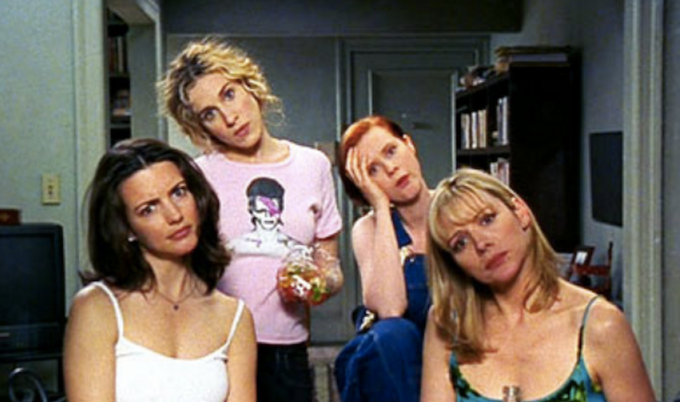Letters from “The Contemporary”: Christopher, Letter 5
In March 2016, a group of scholars gathered for "The Contemporary," a conference on twenty-first century literature and culture, hosted by Princeton University. This series of responses by participants Aku Ammah-Tagoe, Christopher Patrick Miller, and Mande Zecca takes up questions raised there.
An essay by the organizers was published earlier on Contemporaries; further information on the conference's program and participants can be found at contemporary.princeton.edu.
At the risk of sounding insular, I wanted to pick up the thread of "confrontation" in Mande's response, with the hope of looping back to some of Aku's comments. My interest in fleshing this out has as much to do with my sense of a recent confrontation as it does about any generalizable conceptualization of the contemporary, but perhaps that is the place to begin, as Mande suggests, from where and how a body finds itself in the world, with all the proximities, limitations, and misunderstandings this implicates me among.
Many of the conversations among poets that Mande cites have been influential as well in my sense of what matters to poets, and perhaps writers more broadly, right now. In particular, both Cathy Park Hong's "Delusions of Whiteness in the Avant-Garde," and Heriberto Yépez's "Confession and Testimony: On the New Berkeley Poetry Conference" were texts that I, too, read closely, and in particular around the unfolding and dissolution of the "2015 Berkeley Poetry Conference" (BPC) and the eventual re-gathering of existing and new participants as the "Crosstalk, Color, Composition: A Berkeley Poetry Conference" (CCC). Both Hong and Yépez were invited to the original form of the conference for their work as innovative poets and critics, a fact I know because I was involved in much of the background labor for the BPC and a part of the smaller committee that assembled the CCC. It would require much to long of a piece to recount the full circumstances of the implosion of the BPC (and subsequent formation of the CCC), but what seems worth mentioning is that the potential presence of Vanessa Place, following her blackface Twitter performance using Gone with the Wind (GWTW), was a definite catalyst but not sole cause of many poets' decisions to cancel their trips.
The event's downfall had as much to do with the various kinds of positioning and posturing that occurred around Place's violent speech act, happening in the spurious continuous-present of Facebook, Twitter, or semi-public petitions. In addition to Place's suspect public defenses of her actions as directing "cruel" speech to particular audiences (white) and for specific effects (excavating racial guilt) were arguments linking universalizing notions of "poetry" to liberalist conceptions of "free speech" (see Ron Silliman's "Je Suis Vanessa") as well as ongoing debates, touched upon by Mande, about the role of alliances or allies in these moments, like conferences or anthologies, where power is consolidated or extended or, more rarely, transformed. These responses formulated radically disparate notion of poetry's public, or publics. And given poetry's institutional and financial marginality—in contrast to what seems to me a real wealth of small presses, reading series, and dedicated readers—these antagonisms felt more acute and consequential.
What became apparent to me amidst the conversations of the BPC and CCC was the difficulty in undertaking a respectful conversation and generous space where poets could share their work. For one, a poet's idea of advocacy or political militancy can so quickly produce a reciprocal burden for another poet, for reasons local and historical, conscious and visceral, to step in and do "diversity work," mediating some impossible position between various abstractions of race, institutional power, gender, class consciousness, etc. During a performance of the Black Took Collective, Dawn Lundy Martin (via Skype) held up a hand-written paper to the eye of her camera that read: "Don't ally me to death." Simultaneously, Ronaldo Wilson and Duriel Harris were improvising with a range of live writing, vocal effects, dance, and physical props, creating an immersive and often terrifying space where languages of race, trauma, and resistance were layered, bound, and scattered.
The body is a contested space, and it was striking to me how much of the poets and seminar leaders at the CCC (full list of participants) situated social and political questions in terms of the tendentious physical and imaginative evidences of having a body, a body always in relation to how you and others use it. In Yépez piece, he notes how Ronaldo Wilson's commitment to thinking of himself as an America, a black American specifically, sounded to him like nationalism, a nationalism that anchors not just political violence but poetic affiliation and practice. Though useful as a rejoinder to persistent blindnesses of academic and creative discourse, what Yépez's polemic elides is that when Wilson or other attendees spoke of the body and its relation to or place in a country as the "site" of poetry, I didn't hear them claiming a particular relation between body and nation or some equivalence between the fact of being American and the ideological coherence and hierarchy of a national (or international) community. If there was agreement, it was that no trade is free or equal and that the work of poetry was more often in mediating disparities between language and capital, matter and spirit, indigineity and sovereignty.
In terms of strategies for reading the contemporary, it is worth noting, too, how Yépez piece could be contrapuntally read, as Edward Said suggested, for what it leaves out, perhaps at the limits of what any attendee of a conference could sustain in attention (each day had two seminars and a nightly reading). For example, two seminars—"Geographies of Struggle" by Tonya Foster and "Who We and How?" by Farid Matuk—directly took up questions of complicity and failure when it comes to witnessing acts of violence, developing physical and imaginative strategies of resistance, and sustaining forms of solidarity that don't imply easy identification or sympathies between collaborators. Matuk distributed a portion of a lecture given by Bernice Johnson Reagon, perhaps best known as a singer from the a cappella group Sweet Honey in the Rock, that compares the feeling of acclimating to the high-altitude wilderness in Yosemite Valley to the feeling of doing coalition work:
But when you bring people in who have not had the environmental conditioning, you got one group of people who are in a strain... I wish there had been another way to graphically make me feel it because I belong to a group of people who are having a very difficult time being here. I feel as if I am gonna keel over any minute and die. That is often what it feels like if you're really doing coalition work. Most of the time you feel threatened to the core and if you don't, you're not really doing no coalescing.[1]
I give this rather local set of contexts in part because I think polemics, militant tactics, freedoms of expression, aesthetic values, etc. all seem valuable and necessary resources when it comes to constructing a sense of "the contemporary" but also because they come through clearest in relation to the ever-present dangers of doing "coalescing."
Perhaps in reaction to such uneven realities, some recent criticism has sought to establish independent criteria for, say, vetting a literary object's autonomy as its political character, describing literature as the discrete work of "the mind" (separable from the world), or distancing the racist beliefs of authors from aesthetic judgment. However, participating in the backgrounds and foregrounds of these conferences has convinced me that such questions of belief and valuation are indissociable, like spooky actions at a distance, precisely because the ignorances in which we form our beliefs become an expressive part of our more positive, analytical assertions about who or what matters. Aku noted how difficult it was at Princeton for "conversations about marginalization to gain momentum," speculating that was because "marginalization, particularly in its racist forms, is both too close for comfort and too far to reach." This paradox of nearness and farness rings true to me, as well, when thinking about the ways composition is always composing us with what we seem to speak for or as. The feeling of being really contemporary is something like uncomfortable laughter, as Aku notes, when laughter is the live feeling of who or what we speak with breaking apart or dragging against whatever I take myself to stand for.
- Christopher
IN THIS SERIES:
[1] "Coalition Politics: Turning the Century," Home Girls: A Black Feminist Anthology, ed. Barbara Smith (New Brunswick, NJ: Rutgers University Press, 2000), 356.




